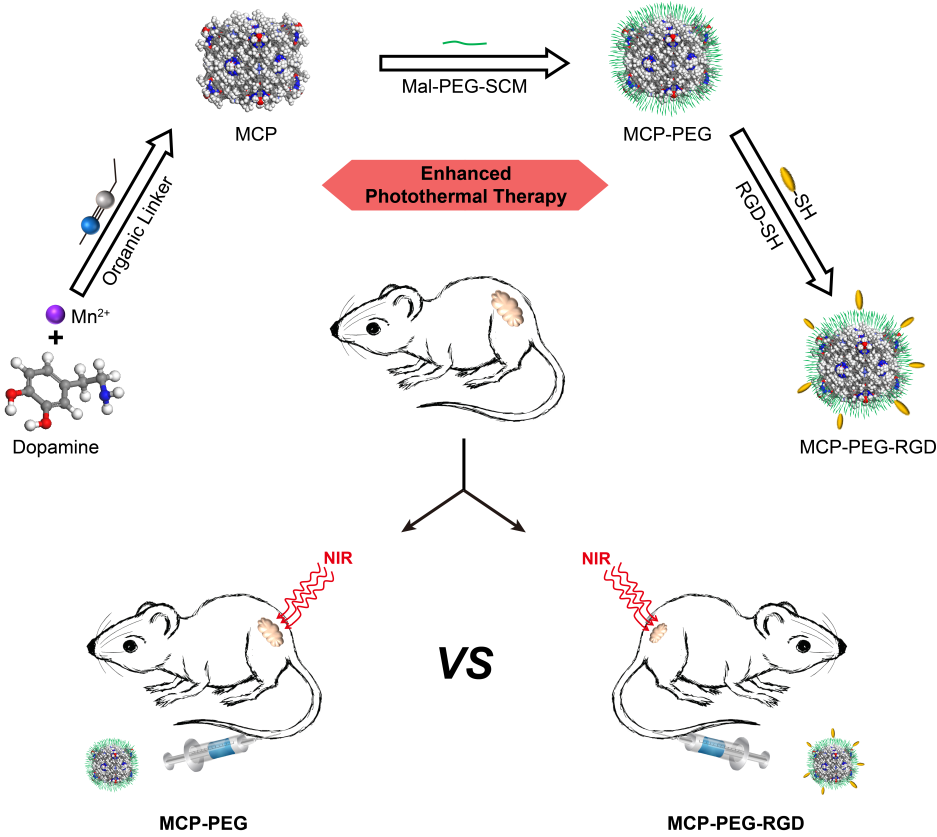Multifunctional hybrid nanogels by combining nanomaterials in a polymer network have attracted much attention in biomedical areas due to their great potential for simultaneous bioimaging, biosensing, stimuli-responsive drug release and cancer therapy.
Recently, a research team in China successfully developed a simple one-pot route to in situ synthesize MOF-based hybrid nanogels.
Nanoscale metal–organic frameworks (MOFs) demonstrate great potential for the synthesis of hybrid nanogels due to their tunable pore space and multiple imaging function.
However, the additive function combination and complex preparation process of MOF-based hybrid nanogels limit their wide application in biomedical areas.
In this study, through introducing dopamine molecules during the MOFs preparation, the in situ hybridization of dopamine occurred in the pore of MOFs, leading the formation of MOF-based hybrid nanogels.
The resulting hybrid nanogels can not only be served as a positive T1 MR contrast agent, but also demonstrate an enhanced photothermal conversion capacity for cancer therapy.
After the further PEGylation and targeting modification, the obtained hybrid nnaogels are featured with a number of unique advantages over commonly explored photothermal agents: uniform size distribution, long-term solution stability, enhanced photothermal conversion efficiency, and higher tumor accumulation.
The related results were published in a paper in Advanced Science entitled "In Situ One‐Pot Synthesis of MOF–Polydopamine Hybrid Nanogels with Enhanced Photothermal Effect for Targeted Cancer Therapy".
The joint research team was led by Prof. CHEN Qianwang and GUO Zhen from University of Science and Technology of China, Prof. WANG Hui from High Magnetic Field Laboratory of Chinese Academy of Sciences and Prof. WANG Haibao from Anhui Medical University.
The work was supported by the National Natural Science Foundation of China, the Ministry of Science and Technology, and the Chinese Academy of Sciences.
 |
|
The synthesis and surface modification and cancer therapy of MOF-based hybrid nanogels. (Image by WANG Dongdong) |
